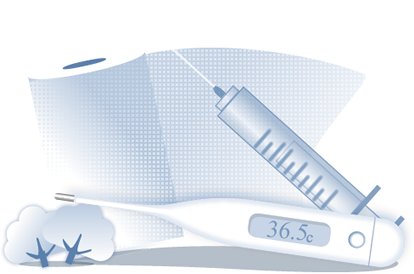
Hypertension during pregnancy: a high-risk issue
Hypertension is a phenomenon that affects between 6% and 8% of pregnant women, and is the leading cause of maternal and fetal mortality. Often, the main complication is the need to induce the baby very early to prevent later problems.
Hypertension during pregnancy includes a wide spectrum of pathologies, from gestational hypertension to more serious conditions such as eclampsia and preeclampsia. These may occur at any time from the second trimester to a few days before the birth. The most common complication of these pathologies, when they are serious, is usually the need to induce the baby.
Gestational hypertension often resolves itself
Gestational hypertension is an increase in blood pressure during pregnancy, usually occurring after the 20th week. It sometimes takes the form of a symptom that anticipates more serious forms of hypertension such as preemclapsia and eclampsia. In most cases, however, gestational hypertension is benign, and resolves itself when the mother's blood pressure returns to normal about 3 months after the birth.
Preeclampsia: gestational hypertension accompanied by protein in the urine
Preeclampsia is one of the most serious pathologies that can occur during pregnancy. It may affect women who already suffer from high blood pressure, and those who do not. In all cases, however, there are 2 main clinical symptoms of preeclampsia: an acute form of hypertension and traces in the urine of protein molecules that are not normally excreted. This is because the kidneys, which drain fluid from the body, are not working properly.
Eclampsia: when hypertension affects the brain
Apart from high blood pressure, preeclampsia is associated with oedema caused by protein loss, and may rapidly progress to an even more serious syndrome: eclampsia. This is a pathology that compromises the central nervous system and causes convulsions, often preceded by signs such as headache and visual disturbance. Both eclampsia and preeclampsia may be symptom free and occur during an apparently normal pregnancy in a woman with almost normal blood pressure.
All the damages of eclampsia
Eclampsia during pregnancy may damage not only the central nervous system but also the functioning of the kidneys, the main organs involved in this syndrome. In more serious cases, it may cause damage not only to the kidneys but to the heart, lungs and liver.









